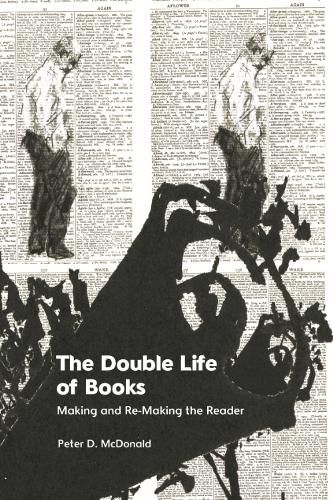Readings Newsletter
Become a Readings Member to make your shopping experience even easier.
Sign in or sign up for free!
You’re not far away from qualifying for FREE standard shipping within Australia
You’ve qualified for FREE standard shipping within Australia
The cart is loading…






The Double Life of Books confronts a central challenge for the history of reading: how to investigate and then describe the elusive process of what the leading book historian Robert Darnton calls 'inner appropriation.' It does so by bringing two voices together for the first time: the so-called 'ordinary reader' who began life as a devotee of Dr Seuss's The Cat in the Hat and the literature professor who writes about the history of media and reading. Ranging across world literatures in English since the 1890s and drawing on the latest research into the neuroscience of the reading brain, The Double Life of Books is at once an exercise in materialist autobibliobiography, asking what it means to be a living reader in our multimedia age, and a sustained reflection on academic professionalization, raising new questions about the limits of disciplinarity and critique.
$9.00 standard shipping within Australia
FREE standard shipping within Australia for orders over $100.00
Express & International shipping calculated at checkout
The Double Life of Books confronts a central challenge for the history of reading: how to investigate and then describe the elusive process of what the leading book historian Robert Darnton calls 'inner appropriation.' It does so by bringing two voices together for the first time: the so-called 'ordinary reader' who began life as a devotee of Dr Seuss's The Cat in the Hat and the literature professor who writes about the history of media and reading. Ranging across world literatures in English since the 1890s and drawing on the latest research into the neuroscience of the reading brain, The Double Life of Books is at once an exercise in materialist autobibliobiography, asking what it means to be a living reader in our multimedia age, and a sustained reflection on academic professionalization, raising new questions about the limits of disciplinarity and critique.